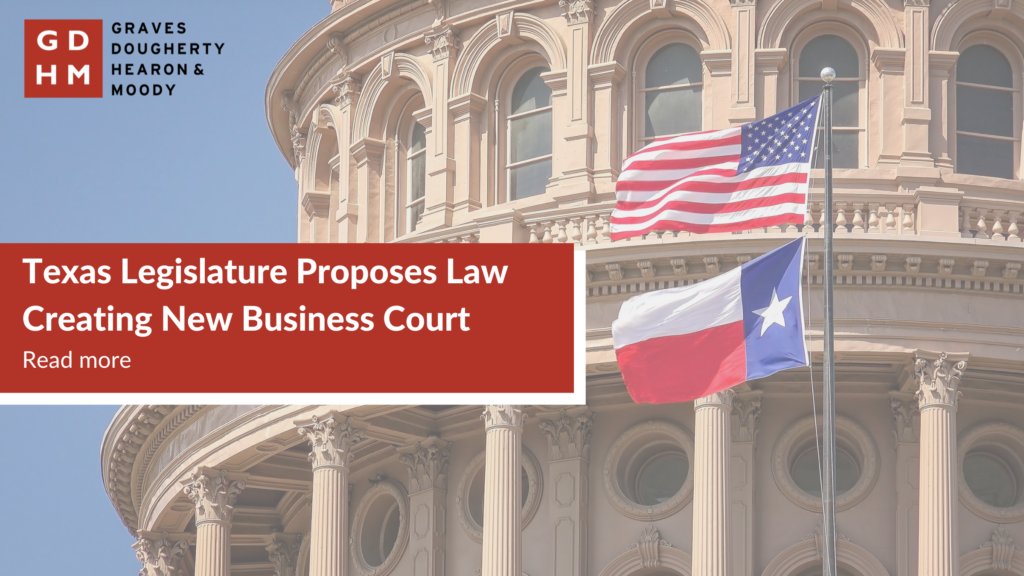
The 88th Texas Legislature has released its list of legislative priorities for this session. Among them is the creation of a new business court, as predicted during this panel before the Austin Bar, “Are Business and other Specialty Courts Coming to Texas?” The low bill numbers of the companion bills, Senate Bill 27 and House Bill 19, tend to indicate their high priority. And the bills are identical, promoting simultaneous consideration in both chambers and expedited passage into law.
Effective January 1, 2025, the law would create a business court with the power to grant any relief that may be granted by a district court. The business court’s jurisdiction would be concurrent with the district court in at least ten areas, including any: action alleging a business owner breached a duty, including the duty of care, loyalty, or good faith; derivative action on behalf of an organization, such as a suit by a class of shareholders; securities action; or action arising out of a transaction in which the amount in controversy exceeds $10 million.
Three additional provisions are of note. First, a party to an action filed in a district court or county court “may remove” the action to the business court. Second, appeals from business court would go up to a newly created Fifteenth Court of Appeals, rather than (as we are accustomed to locally) the Third Court of Appeals. And finally, the governor would appoint the business-court bench, which would be comprised of seven judges serving in short, two-year increments.
The proposed law would transform local practice. It mirrors similar proposals from past sessions, including H.B. 1875 in 2021. Time ran out on that bill. But the House committee that went ahead and studied the operation of specialty courts recommended, in its December 2022 Interim Report to the Texas Legislature, that lawmakers first monitor the pilot program being created by the Texas Supreme Court before implementing the legislation statewide.
Hearings at the Texas State Capitol are expected to begin next week. Members of the Bar are encouraged to attend and to testify about the effects the law would have on their practice.
Author: Daniela Peinado Welsh

Daniela is a litigator and former federal law clerk who helps clients navigate complex disputes.